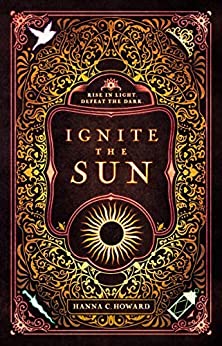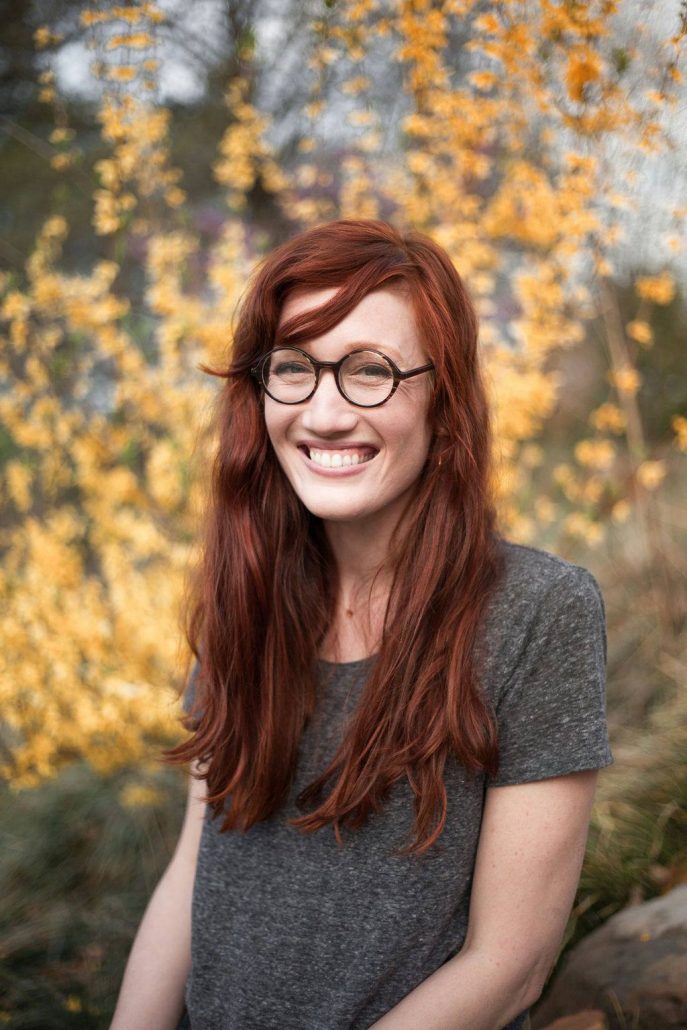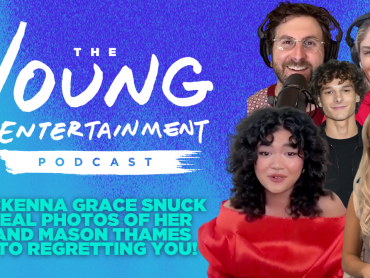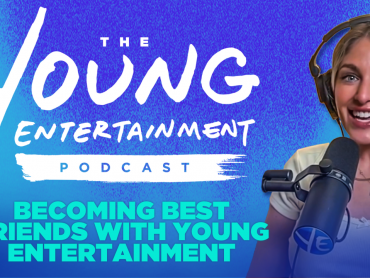This week’s, Young Entertainment Mag’s Twitter will be taken over by YA author Hanna C. Howard. Almost a decade in the making, author Hanna C. Howard has released her debut novel, Ignite The Sun. Howard began writing this young adult fantasy in 2011 during a two-week long blizzard in Tulsa, Oklahoma. The city shut down for two solid weeks, and as the author has already been floating through terrible clinical anxiety and Seasonal Affective Disorder, she drafted her story. The novel became a way out of her own darkness, as well as a way to process it. Ignite the Sun is set in a world that hasn’t seen the sun for more than fifteen years.
Oppressed by her surroundings, sixteen-year-old Siria longs for the “light-filled old days” she’s only heard of from her best friend and his grandfather, and heads to the heart of the darkness determined to restore the Light, or lose everything trying. YEM spoke with Hanna C. Howard about Ignite The Sun!
Young Entertainment Mag: How did you get involved in writing? At what age did you know you wanted to be a writer?
Hanna C. Howard: I’ve loved writing stories for a long time, to such an extent in fourth grade that my teacher told me I should consider being a writer when I grew up. However, it wasn’t until high school that I started to take that idea seriously. I started writing my first (terrible) novel when I was in tenth grade, and when I went to college decided to study English and Creative Writing in order to aid my authorial ambitions. I knew I wanted to be a writer when, at seventeen, I realized just how much joy the process of writing fiction brought me.
YEM: Your debut novel comes out this month! Tell us about your book Ignite The Sun.
Hanna: Yes! It came out on Tuesday the 18th! Ignite the Sun is a story about a teenage girl who has grown up in a kingdom with no sunlight. But who discovers that she has an elemental magic link to the banished sun, and might be able to bring it back to the world. That is, if she can defy and defeat the witch queen who created the Darkness in the first place. It’s a coming of age story and a journey narrative, with lots of magic, action, adventure, and a splash of romance.
YEM: Where did the idea for this book come from?
Hanna: A number of different instances of curiosity! One was while I was out walking my dog, and felt as if I’d like to leave the ground every time I walked into the sun; I wondered what it would be like to be a creature who could only fly in the sunlight. Another was when I thought I overheard someone mention “the Darkness,” which sounded like a sinister entity. And I wondered what such a thing might be if it were real. And eventually I realized that those ideas, and the things they were each brewing, could be joined into one big idea.
YEM: Your book has elements of fantasy and adventure. What are some of your favorite novels in that genre?
Hanna: Fantasy is my favorite genre! Like many people, my classic meat and potatoes favorites are The Lord of the Rings, Harry Potter, and Narnia. But my long-time favorite novel is Ella Enchanted by Gail Carson Levine, and some others I love deeply are Garth Nix’s Old Kingdom books, Marissa Meyers’ Lunar Chronicles, and Douglas Adams’ Hitchhiker’s Guide books.
YEM: Ignite the Sun revolves around 16 year old Siria Nightingale. How did you create this character? Are there any elements of yourself in her character?
Hanna: Siria sort of grew out of the story idea, I think. And in that sense, I’m sure there’s bits of me in her (because the story was one that grew out of me). She definitely has the SAD/anxiety I have dealt with, as well as my passion and temper. I also think my sixteen year-old self would have related to her self-doubt and angst.
YEM: The kingdom is ruled by an evil witch… be honest, is it fun to write villainous characters?
Hanna: Haha, definitely! It’s great fun to write characters you’d never in your life want to be, because your limits are so much broader than you’d ever let them be in real life. It’s probably a therapeutic way of dealing with one’s own depravity. 😉
YEM: The book deals with the contrast between light and darkness. What do those differences mean to you?
Hanna: Light and dark is a very powerful metaphoric theme for me, for several reasons. One of those is because my personal experience with anxiety and depression has manifested itself as a very heavy mental and emotional darkness, which I am much less tormented by in spring and summer, and which seems to give way to light in times of health. Another reason is because I ascribe to the Christian faith, which equates suffering, sadness, and death with darkness, and gives the metaphoric significance of light to hope, joy, wisdom, and life. And the truth of these things is never more apparent to me than when I watch a sunrise, or see candles flickering in dark rooms: the very sight of light in dark places gives me a visceral, physical reaction of giddy joy and hope.
YEM: Your book comes with a map!!! Why did you decide to add that extra visual element to your novel?
Hanna: Yes! I love maps in books!! I actually always hoped my book would have one (because I had to draw one for myself while I was writing it, in order to keep myself from getting lost!), but it was my publisher who decided the book would have one. (Maybe my editor needed a visual reference, too!) I was so thrilled when I found out.
YEM: You’ve said this book was partially inspired by your own experiences with mental health. What would you tell readers that are dealing with mental health themselves?
Hanna: I would say to get help! We are getting better about un-stigmatizing mental illness. But we still have a long way to go, and being willing to seek professional help is a good way to change the thinking in your own sphere. You wouldn’t be ashamed to see a doctor if you got cancer (and mental illnesses can be just as deadly). So don’t be ashamed to seek mental health help if you think you may need it. Also, make sure you have a good community around you.
I was really isolated when I first started dealing with anxiety. And while there were other healing factors at work that helped me get better, it wasn’t until I got really plugged in to a community (church, in my case) that I started to experience real freedom from that mental darkness. This is extra hard to do during COVID, so take it seriously. Do what you have to do to make sure you’re not alone. (Ask people to bubble with you, move in with family for a time, ask for help.) And finally I would say, try and find things that bring you joy, and make time for them. When I was in the height of panic attacks and anxiety, one of the best remedies I had was binge-watching Doctor Who. It was a show that brought me actual joy (it didn’t just numb me), and that was a lifeline.
To follow along with this week’s Twitter takeover, follow our Twitter account @YoungEntmag and follow the hashtag #YAAUTHORTAKEOVER.





